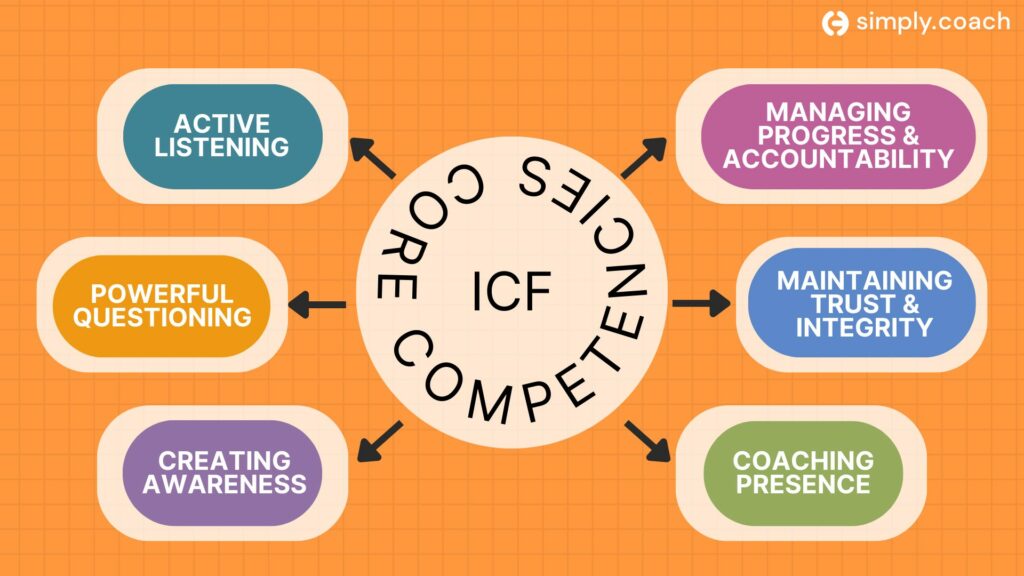Coaching is a partnership, between you and your client, based on trust, understanding and a shared desire to overcome existing challenges to ensure a prosperous future. It is a process that is designed to help the client grow into better versions of their existing selves, professionally as well as personally.
Coaching is also an investment – of time, effort and money – that your client makes (or their organization makes) to help them move on to the next level in their development. Naturally, any investment is made with the intention of getting an ROI (Coaching ROI = Benefit attained by coaching divided by Cost of coaching x 100), where the benefit may include skill upgradation, newer learnings, issue solving, goal achieving, increased productivity, etc.
So, for coaching to deliver such results, it is imperative that coaching sessions are well structured and achieve tneir objectives, to set a positive tone for the next session and take a definitive step to move forward in the journey.
Let’s dive into how a coach will impact coaching sessions – right from selecting relevant coaching session topics to the groundwork needed to be completed before actual coaching can begin, tasks & strategies to be touched upon during the session, as well as evaluating the impact after the session.
How to conduct impactful coaching sessions
We can divide the coaching session process into three segments – preparation before the coaching session, objectives to accomplish during the session and finally ascertaining the impact after the coaching session and deriving take-aways before moving on to the next session.
a. Preparation before a coaching session
1. Take deep breaths and a few moments to focus
The start of all coaching sessions is important (more so if it is the very first session!) as it will set the tone for the rest of the session.
So right before you begin the session, take a few minutes to yourself, visualize how you can deliver an impactful opening that gets your client engaged right at the beginning and how you can effectively table the coaching session topic. Well begun is truly half the job done!
2. Self-confident approach and crisp communication to connect with client
Let’s accept the fact that presentation matters, not just of the subject matter but your own as a coach too. Yes, substance is more important than the image but don’t discount the impact of good visuals. A confident body language (maintaining eye contact while facing the client), professional etiquette (put your phone on silent mode/switch it off, for example) combined with powerful oratory skills are just the right combination to capture the attention of your client. Good vocabulary, usage of right pitch, voice modulation are all part of effective communication skills and go a long way in not only establishing a good connect with your client but also decide how you as a coach will impact the initial stages of coaching sessions.
3. Create a secure environment to put the client at ease
The success of the entire journey, let alone the session, can come down to you asking the right questions and the client reciprocating with open, honest and insightful answers. But for your client to truly open up and divulge their personal and innermost thoughts, they have to feel complete trust in you.
As a coach, it is your duty to create a comfortable, stress-free environment that exudes positive vibes and a growth environment. This will go a long way in building confidence in your reliability and competency as an effective coach.
4. Respect the limitations of time to get maximum output
At the outset, think about how frequently the coaching sessions are going to take place, weekly, bi-weekly or monthly. It depends on your client’s requirements and both your schedules. Then, the duration: most coaching sessions last anywhere between 45 minutes to an hour but if time is a limiting factor, you can also opt for shorter but more frequent sessions.
In order to get the maximum output and keep moving forward it is necessary that you arrive well prepared for the session with a clear, structured outline and an understanding of where you last left off. Of course, no session can be rigidly planned, make sure you leave a little buffer period for any spontaneous conversations that pop up. The aim is to deliver a productive session in the available time that adds value to your client’s coaching journey.
b. Must-dos during a session
1. Identify the goal or coaching session topics
Having a clearly defined goal or choosing relevant coaching session topics is a must so that it delivers quantitative (and qualitative) outcome that takes the coaching process a step forward. By all means let the session flow naturally, but as a coach ensure that it sticks to the decided upon coaching session topics so that the conversation does not deviate from the subjects that need to be addressed.
Ideally, try and not cram in too many topics (the client can have a number of issues that need sorting), the danger is that none can be discussed in depth. Instead, focus on one or two topics that are high priority for the client.
Interesting coaching sessions, that focus on important subjects and makes inroads into solving those issues, assures the client that they are on the right coaching path and helps them become more involved in the upcoming coaching sessions.
2. Get insight into your client’s requirements
Once you have set the agenda for the session, delve deeper into what the client truly needs, their foremost challenges and objectives and where they stand currently in respect to those aspirations. Asking the right questions can steer the client into getting a fresh and previously overlooked perspective of the issue, encourage newer understanding on how to resolve it or the open discussion may throw up the fact that the issue was never a problem in the first place, all that was needed was a changed point of view!
Don’t expect instant resolution to the challenges in one session itself, that is an unrealistic goal. Instead measure the success of a session by gauging if any positive actions have been taken, no matter how small, in the right direction. As a coach, ensure that you balance expectations versus realistically achievable outcomes.
3. Work towards the goal, identify action steps
Your role as a coach is not to provide readymade solutions but to guide the client to make those discoveries for themselves. Empower them with problem solving tools so that they brainstorm and come up with action plans of their own (not just for the session but for any issues that might present themselves in the future). The analogy ‘give a man a fish and you feed him for a day, instead teach a man how to fish and you’ll feed him for life’ sums up the roles of coach and client succinctly.
Work in collaboration with your client to strategize a feasible action plan, encourage them to execute those tasks that will help bring them closer to their stated goal.
But keep in mind that whatever targets are set, they should be realistically achievable. Setting the bar too high in terms of achieving lofty objectives that end up not being fulfilled can create negativity and frustrations for the client, making them feel undervalued.
4. Implement core coaching competencies

The implementation of core coaching competencies is crucial for conducting impactful coaching sessions that foster growth and development. Defined by coaching organizations like the International Coach Federation (ICF), these competencies serve as a foundation for effective coaching practices:
- Active listening: You must fully engage with clients, demonstrating empathy and understanding. This competency allows you to grasp the client’s perspective, building trust and rapport.
- Powerful questioning: Asking thought-provoking questions stimulates reflection and encourages clients to explore their thoughts and feelings.
- Creating awareness: Coaches help clients gain clarity and awareness about their values, beliefs, and behaviors. By shining a light on blind spots or limiting beliefs, you empower clients to make informed decisions and take purposeful actions.
- Managing progress and accountability: Regularly reviewing progress of the aforementioned goal and action steps helps clients stay on track. You must provide constructive feedback, celebrate achievements, and foster a sense of responsibility.
- Maintaining trust and integrity: You must operate with honesty, transparency, and confidentiality, creating a safe space for clients to share openly and explore challenges without fear of judgment.
- Coaching presence: Being fully present in the moment enhances the coaching experience. Exhibit a non-judgmental and open mindset, so you can connect authentically with clients and respond intuitively to their needs.
5. Take notes, be open to change & keep learning
Your session notes help you reflect on the events of what’s working and what’s not and also help better prepare yourself before the next session. Having specific details at hand can make it easier to ask more meaningful question in the next session to ascertain the client’s real progress.
6. Assign accountability
Coaching, as we’ve mentioned many times, is a partnership where all the participants need to be fully invested in the process and its outcome. Slacking off from either party, coach or client, will ensure that the end result will be less than desirable. Just as you as a coach are expected to bring your professional A game to the coaching session, it is also expected that the client is fully invested in the process too.
If the role of the coach demands that you guide, support, motivate the client in their journey of self-awareness and realization of goals, it is the client’s duty to implement the tasks they have assigned themselves to fulfil those objectives. Having a terrific action plan in theory amounts to nothing if not applied in practice.
As a coach, you need to make the client own responsibility for the outcome of the coaching session. The client needs to be made aware that they themselves are the ones who can create opportunities for change and that they need to be accountable for the output they desire.
c. Steps to take after a coaching session
1. Determine impact of session
Just as pre-session preparation is important, equally significant is ascertaining the real impact of what the sessions have achieved. As a coach, tracking the client’s progress (or lack of) towards achieving set goals is a true measure of how impactful the coaching sessions have been. It will help you understand whether the current action plan is proving effective or whether there is a need to re-calibrate for better results.
Ideally, assess the impact right after each session has wrapped up and the events are still fresh in your mind. Not only does this ensure accurate recollections, it will help fortify/adapt strategies for the upcoming session.
2. Constructive feedback & follow-ups
As a coach it is your job to evaluate the client’s development and give feedback so they can gauge where they stand. Furnishing constructive feedback is a delicate balance between honest, frank assessment and a manner that offers a positive reinforcement of the client’s abilities and not as a harsh criticism of their shortcomings.
Use feedback to encourage the client to keep moving forward in their self-development journey.
Follow-ups are vital after a coaching session. Keeping in regular touch via follow-up email after coaching session, chats or messages (or even suggesting one on one coaching sessions if necessary) proves to your client that they are your priority. It gives out the signal that as a coach your interest in their progress is not limited to just the actual coaching session.
How Simply.Coach can help you conduct impactful coaching sessions
Simply.Coach is a digital coaching platform that has been designed for coaches, by coaches. Its goal is to make life easier for you, so can spend more time focusing on creating impact with your coaching.
In fact, most of its client management features are targeted towards helping you deliver more impactful coaching sessions:
- Goal setting & progress tracking
- Action plans
- Scheduling
- Note-taking
- Digital coaching tools (digital forms)
- Stakeholder integration
and so much more! In fact, it even comes with a client workspace where your clients can take notes, update their goals, complete exercises and view resources shared by you, and so on. Take it for a spin here.
5 Tools you need to plan an impactful coaching session
This one sounds a bit obvious, but a well-designed digital calendar does more than help you keep track of your schedule – it streamlines it. With Simply.Coach’s scheduling tool, for example, you can add in sessions and so can clients as well as prospective clients. This is because you’re able to display slots of available time – as per your exact customisation – for clients to self-schedule their sessions.
2. Note-taking
A well-designed note-taking tool will feel as organic as writing on pen and paper. In fact, it should also come with an option for you to upload your pen-and-paper notes into the digital notebook. With Simply.Coach, you can go one step further and convert your notes into action items.
3. Digital tools
Over the course of an engagement, there are plenty of resources and worksheets that you share with clients. In a remote setting, this must be done digitally via digital coaching tools. With Simply.Coach’s Digital Tools feature, you can create custom forms, send them out and gather responses as well as visual reports.
4. Goal planning
A goal setting tool allows you to create and record goals – in Simply.Coach’s case, you can create SMART goals – then break them down into action items, and track the client’s progress on them in an objective manner.
5. Resource library
A resource library allows you to share any resources – videos, links, media – in one place with clients. Gona are the days where your resources would be scattered across WhatsApp, email, text messaging, and so on.
In conclusion, just as your client needs to re-invent themselves, so do you! In order to remain a great coach, you need to keep learning, gain fresh perspectives, develop newer skillsets, keep abreast of current coaching trends and techniques so that you can deliver a superior coaching experience to your clients during each coaching session.
FAQs
1. How to prepare for a coaching session?
As with any new assignment, starting a coaching session comes with a fair amount of preparation. Preparing well before beginning a coaching session can go a fair way in controlling its course. Each coach will have their own distinct mannerisms and checklists of getting ready for a coaching session. But broadly, some points remain the same such as being calm, relaxed and focused on the upcoming session, giving yourself a little time to re-acquaint (or know freshly if it’s a brand-new client) with your client, make sure that the coaching environment is favourable, safe and comfortable for the client, bring your best professional appearance (not just cosmetic but the self-confidence, superlative communication skills), understand time constraints and work out a session that will deliver maximum impact in limited period.
2. How to conduct a life coaching session?
Life coaching is a solution focused service that is designed to help clients become aware of their true strengths and weaknesses, unlock their hidden potentials, develop newer skillsets, get out of their comfort zone and achieve their desired targets. For a coach to conduct an effective life coaching session they must first create a disturbance free and secure environment, emphasize that confidentiality and privacy are sacrosanct, work towards building a trusting relationship with the client to help them truly open up about their needs, understand their expectations from that session, recognize the client’s priority topic for that session and address the same, chart out a feasible action plan mutually, assign accountability to the client for executing decided tasks.
About Simply.Coach
Simply.Coach is an enterprise-grade coaching software designed to be used by individual coaches and coaching businesses. Trusted by ICF-accredited and EMCC-credentialed coaches worldwide, Simply.Coach is on a mission to elevate the experience and process of coaching with technology-led tools and solutions.

Writer
An avid reader with love for books on history, sci-fi and popular fiction, Pallavi is a gifted content writer. She is also a keen listener of Indian semi & classical music. Currently, she juggles her duties of being a full-time mom with part-time content writing.









